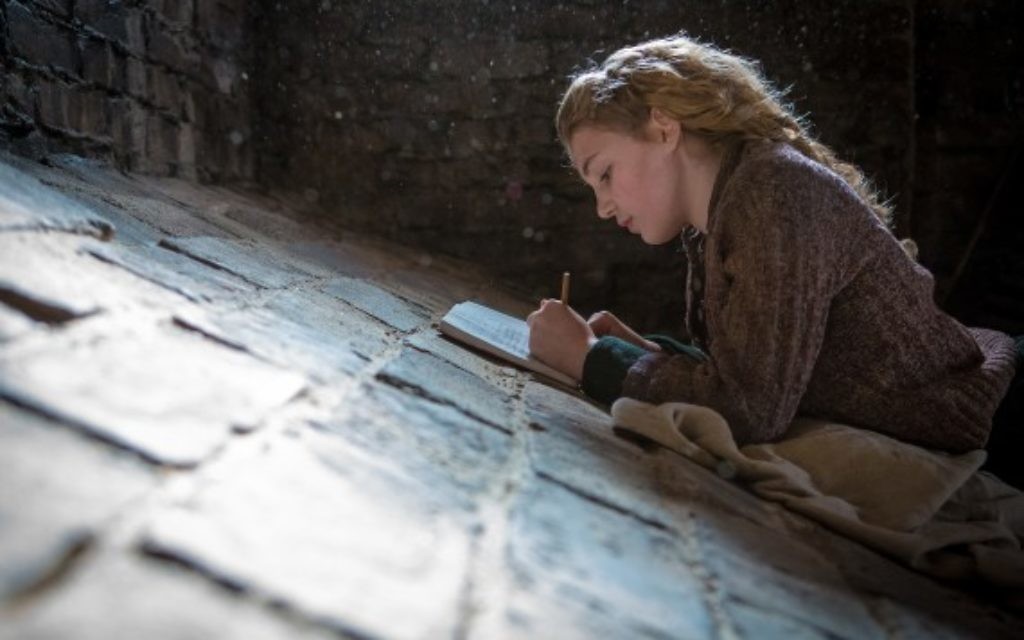Are we finally ready to see the war as Germany’s tragedy too?
Richard Ferrer has been editor of Jewish News since 2009. As one of Britain's leading Jewish voices he writes for The Times, Independent, New Statesman and many other titles. Richard previously worked at the Daily Mail, Daily Mirror, edited the Boston Jewish Advocate and created the Channel 4 TV series Jewish Mum Of The Year.
By Richard Ferrer, Editor Jewish News
Hollywood has dreamed up some dastardly baddies over the years. But since the Second World War, not even Darth Vader or the Wicked Witch of the West has provided a more reliable source of “boo hiss” than real-life Nazis.
For 70 years, the war-film genre has been a straightforward struggle between good and bad – the heroic Allies versus the demonic Nazis. The Third Reich is an instant means to shock and scare.
Get The Jewish News Daily Edition by email and never miss our top stories Free Sign Up
It’s less problematic for popcorn-munching audiences to tar all war-time Germans with the same brush – from high-ranking officers to ordinary Deutschers. All were complicit. All were guilty. In terms of creating a simple plot, this all makes perfect sense. Hollywood thrives on good versus evil. It makes a good story.
But something’s happened of late in the film industry that suggests the issue of collective German guilt is no longer so black-and-white. Last week’s cinema release of The Book Thief is the latest in a new genre that shows the war from a German point of view.
The Boy in the Striped Pyjamas (2008) was among the first to take a nuanced view, looking at the horror of the Holocaust through the eyes of a concentration camp commandant’s son. Then The Reader (2008) trod the muddy moral waters of a female SS guard’s war-crimes trial. It proved a goose-step too far for many – especially in the Jewish community – who found the portrayal of a Nazi as a sympathetic character deeply troubling.
Then Lore (2012) followed the children of a Nazi officer as they travelled across post-war Germany after their father’s arrest. The Book Thief continues the theme, looking at Kristallnacht, book burning and the Hitler Youth from the perspective of a nine-year-old Aryan orphan.
Individually, these films might seem exceptions to the black-and-white rule. Together, they feel like a new shade of grey. They cold be seen as a watershed moment in our ability to recognise – even empathise – with victims on both sides. To hear the German point of view.
Of course a great many people, for good reason, simply aren’t ready or willing to hear it. For them there can be no ambiguity because the entire German nation was to blame, to a degree, for the Holocaust. At worst, they were complicit in the crime; at best, they were bystanders who allowed blind hatred to turn into unparalleled genocide. They were all, to use author Daniel Goldhagen’s famous phrase, Hitler’s willing executioners.
This painful reckoning with the past is something for subsequent generations to grapple with more dispassionately. It may take another 70 years to settle on a more balanced and accurate assessment of the Second World War.
That Hitler was everyone’s tragedy.
The Book Thief cinema trailer:

Thank you for helping to make Jewish News the leading source of news and opinion for the UK Jewish community. Today we're asking for your invaluable help to continue putting our community first in everything we do.
For as little as £5 a month you can help sustain the vital work we do in celebrating and standing up for Jewish life in Britain.
Jewish News holds our community together and keeps us connected. Like a synagogue, it’s where people turn to feel part of something bigger. It also proudly shows the rest of Britain the vibrancy and rich culture of modern Jewish life.
You can make a quick and easy one-off or monthly contribution of £5, £10, £20 or any other sum you’re comfortable with.
100% of your donation will help us continue celebrating our community, in all its dynamic diversity...
Engaging
Being a community platform means so much more than producing a newspaper and website. One of our proudest roles is media partnering with our invaluable charities to amplify the outstanding work they do to help us all.
Celebrating
There’s no shortage of oys in the world but Jewish News takes every opportunity to celebrate the joys too, through projects like Night of Heroes, 40 Under 40 and other compelling countdowns that make the community kvell with pride.
Pioneering
In the first collaboration between media outlets from different faiths, Jewish News worked with British Muslim TV and Church Times to produce a list of young activists leading the way on interfaith understanding.
Campaigning
Royal Mail issued a stamp honouring Holocaust hero Sir Nicholas Winton after a Jewish News campaign attracted more than 100,000 backers. Jewish Newsalso produces special editions of the paper highlighting pressing issues including mental health and Holocaust remembrance.
Easy access
In an age when news is readily accessible, Jewish News provides high-quality content free online and offline, removing any financial barriers to connecting people.
Voice of our community to wider society
The Jewish News team regularly appears on TV, radio and on the pages of the national press to comment on stories about the Jewish community. Easy access to the paper on the streets of London also means Jewish News provides an invaluable window into the community for the country at large.
We hope you agree all this is worth preserving.
-
By Laurent Vaughan - Senior Associate (Bishop & Sewell Solicitors)
-
By Laurent Vaughan - Senior Associate (Bishop & Sewell Solicitors)
-
By Laurent Vaughan - Senior Associate (Bishop & Sewell Solicitors)
-
By Laurent Vaughan - Senior Associate (Bishop & Sewell Solicitors)























